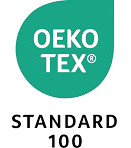In a world increasingly aware of environmental impact, the materials we use daily matter more than ever. Enter bamboo bed sheets, a sustainable alternative to conventional bedding. Known for their silky feel and eco-friendly traits, these sheets are popular among conscious consumers. In this blog post, we’ll explore the eco-friendliness of bamboo bed sheets, why they might be perfect for your bedroom, and how they support a more sustainable lifestyle.
The Rise of Eco-Conscious Living
With climate change and environmental degradation at the forefront of global issues, eco-conscious living is no longer optional—it’s essential. Consumers are becoming more aware of their carbon footprint, prompting them to seek out sustainable options in all areas of life, including home goods. Bedding, being an integral part of our daily routine, offers a surprising opportunity to make an eco-friendly switch.
Bamboo bed sheets stand out as a prime example of combining comfort with sustainability. Unlike traditional cotton or polyester sheets, bamboo sheets are derived from a renewable resource that grows abundantly and quickly. This rapid growth makes bamboo an ideal candidate for sustainable production without the intense resource use of other materials.
The demand for sustainable products is not just a trend; it’s a growing movement. With more people looking for ways to reduce their impact on the planet, bamboo bed sheets offer an attractive solution. By choosing bamboo, you contribute to a larger effort to promote environmentally friendly practices and protect natural resources.
What Makes Bamboo Sheets Eco-Friendly?
Bamboo’s sustainability is rooted in its unique growth properties. Unlike cotton, which requires significant amounts of water and pesticides, bamboo can thrive with minimal intervention. Bamboo plants are naturally pest-resistant and require little water, making them a low-maintenance crop that leaves a smaller environmental footprint.
The process of converting bamboo into fabric is also less resource-intensive than traditional methods. Mechanical processing involves crushing the stalks and using natural enzymes to break down the fibers, which can then be spun into yarn. This method avoids the use of harmful chemicals, further emphasizing bamboo’s eco-friendly nature.
Additionally, bamboo plantations absorb more carbon dioxide and release more oxygen compared to other plants, contributing to cleaner air. Bamboo’s rapid growth and renewal rate mean it can be harvested frequently without damaging the ecosystem, ensuring a continuous supply of raw material without deforestation.
The Softness and Comfort Factor
When it comes to bedding, comfort is just as important as environmental impact. Bamboo bed sheets excel in both areas, offering a luxurious feel that rivals even the finest cotton sheets. Their softness is a result of the smooth fibers that create a silky texture, providing a comfortable sleep experience.
The breathability of bamboo sheets keeps you cool in summer and warm in winter, making them a versatile choice for any climate. Their moisture-wicking properties help regulate body temperature, ensuring you stay comfortable throughout the night without waking up damp or sticky.
Durability is another hallmark of bamboo sheets. Unlike other materials that may wear out quickly, bamboo fibers maintain their strength and softness over time, even after multiple washes. This longevity means fewer replacements, reducing waste and contributing to a more sustainable lifestyle.
The Bamboo Plant’s Remarkable Growth Rate
Bamboo is one of the fastest-growing plants on the planet, with some species capable of growing up to three feet in a single day. This incredible growth rate means bamboo can be harvested frequently without fear of depletion, unlike slower-growing trees that may take decades to mature.
This rapid renewal makes bamboo an ideal choice for sustainable production. Farmers can continually harvest bamboo without harming the plant or the surrounding ecosystem, ensuring a steady supply of raw material while maintaining environmental balance.
Bamboo’s ability to grow in diverse climates and soil conditions makes it a versatile crop that can be cultivated around the world. Its adaptability reduces the need for fertilizers and irrigation, further minimizing its environmental impact and making it an attractive option for eco-conscious consumers.
The Conversion Process from Bamboo to Fabric
The transformation of bamboo into fabric involves two primary methods—mechanical and chemical processing. Mechanical processing is the more eco-friendly option, using natural enzymes to break down bamboo into fibers that can be spun into yarn, without the use of harmful chemicals.
Chemical processing, while more common, uses solvents to dissolve bamboo pulp, creating a viscose solution that can be spun into fibers. While this method is efficient, it is essential to ensure that any chemical processes are conducted responsibly, with proper waste management and recycling practices in place.
Consumers should look for bamboo bed sheets labeled as “mechanically processed” or “organic” to ensure they are choosing the most environmentally friendly option. This transparency in labeling helps shoppers make informed decisions that align with their values and commitment to sustainability.
Comparing Bamboo to Other Bed Sheet Materials
Bamboo sheets offer several advantages over traditional materials like cotton and polyester. Cotton production is resource-intensive, requiring large amounts of water and pesticides, contributing to environmental degradation. Polyester, a synthetic fabric, is derived from petroleum products and is not biodegradable.
In contrast, bamboo’s natural growth properties and minimal environmental impact make it a superior choice for sustainable bedding. Its biodegradability ensures that bamboo sheets won’t contribute to landfill waste, unlike synthetic materials that persist in the environment.
The environmental benefits of bamboo are complemented by its superior comfort and durability. This combination makes bamboo bed sheets an appealing option for those looking to make a positive impact without sacrificing quality or luxury.
Bamboo’s Role in Reducing Carbon Footprint
Switching to bamboo bed sheets allows consumers to notably decrease their carbon footprint. Bamboo plantations absorb more carbon dioxide and emit more oxygen compared to equivalent stands of trees, contributing to climate change mitigation and air quality improvement. Additionally, the lower resource consumption in bamboo cultivation and processing further reduces carbon emissions related to water, energy, and chemical usage. This comprehensive approach to sustainability makes bamboo bed sheets a responsible choice for individuals aiming to make a positive impact. Opting for bamboo sheets is a strategic move towards a more sustainable lifestyle. By endorsing eco-friendly practices and minimizing dependence on resource-intensive materials, consumers can help ensure a healthier planet for future generations.
The Importance of Sustainable Certifications
When selecting bamboo bed sheets, it’s crucial to look for certifications that verify their eco-friendly status. Certifications such as OEKO-TEX Standard 100 and Global Organic Textile Standard (GOTS) indicate that the sheets meet rigorous environmental and safety standards.
These certifications provide assurance that the bamboo sheets are free from harmful chemicals and have been produced using environmentally responsible practices. This transparency empowers consumers to make informed choices and support brands committed to sustainability.
Supporting certified products not only benefits the environment but also encourages more companies to adopt sustainable practices. This collective effort helps drive the industry toward a more sustainable future, where eco-friendly products become the norm rather than the exception.
Practical Tips for Caring for Bamboo Bed Sheets
Proper care of bamboo bed sheets helps maintain their softness and longevity. Washing them in cold water with a gentle detergent preserves the fibers and prevents shrinkage. Line drying is recommended to maintain their shape and prevent damage from high heat.
Storing bamboo sheets in a cool, dry place protects them from moisture and mildew. Avoid using bleach or harsh chemicals that can weaken the fibers and reduce their lifespan.
By following these simple care instructions, consumers can enjoy the benefits of bamboo sheets for years to come, reducing the need for frequent replacements and contributing to a sustainable lifestyle.
The Growing Popularity of Bamboo Bedding
The increasing demand for bamboo bed sheets reflects a broader trend toward eco-friendly and sustainable living. As consumers become more aware of their environmental impact, they seek products that align with their values and offer tangible benefits.
Bamboo bedding’s blend of comfort, durability, and sustainability makes it an appealing choice for a diverse range of consumers. Its growing popularity indicates a shift in consumer preferences toward products that promote environmental responsibility and well-being.
This trend is likely to persist as more individuals recognize the importance of sustainable living and the role that everyday choices play in fostering a healthier planet. By opting for bamboo bed sheets, consumers can contribute to this movement and encourage others to make environmentally conscious decisions.
Bamboo bed sheets represent a significant step forward in sustainable living, offering a blend of comfort, durability, and environmental consciousness. Their rapid growth, minimal resource requirements, and biodegradable nature make them a superior choice over traditional bedding materials. By choosing bamboo sheets, consumers can enjoy the luxury of high-quality bedding while supporting eco-friendly practices and reducing their carbon footprint. This simple switch can have a profound impact, contributing to a healthier planet and inspiring a more sustainable lifestyle.



